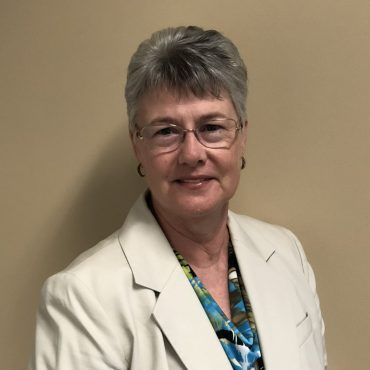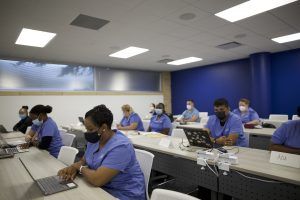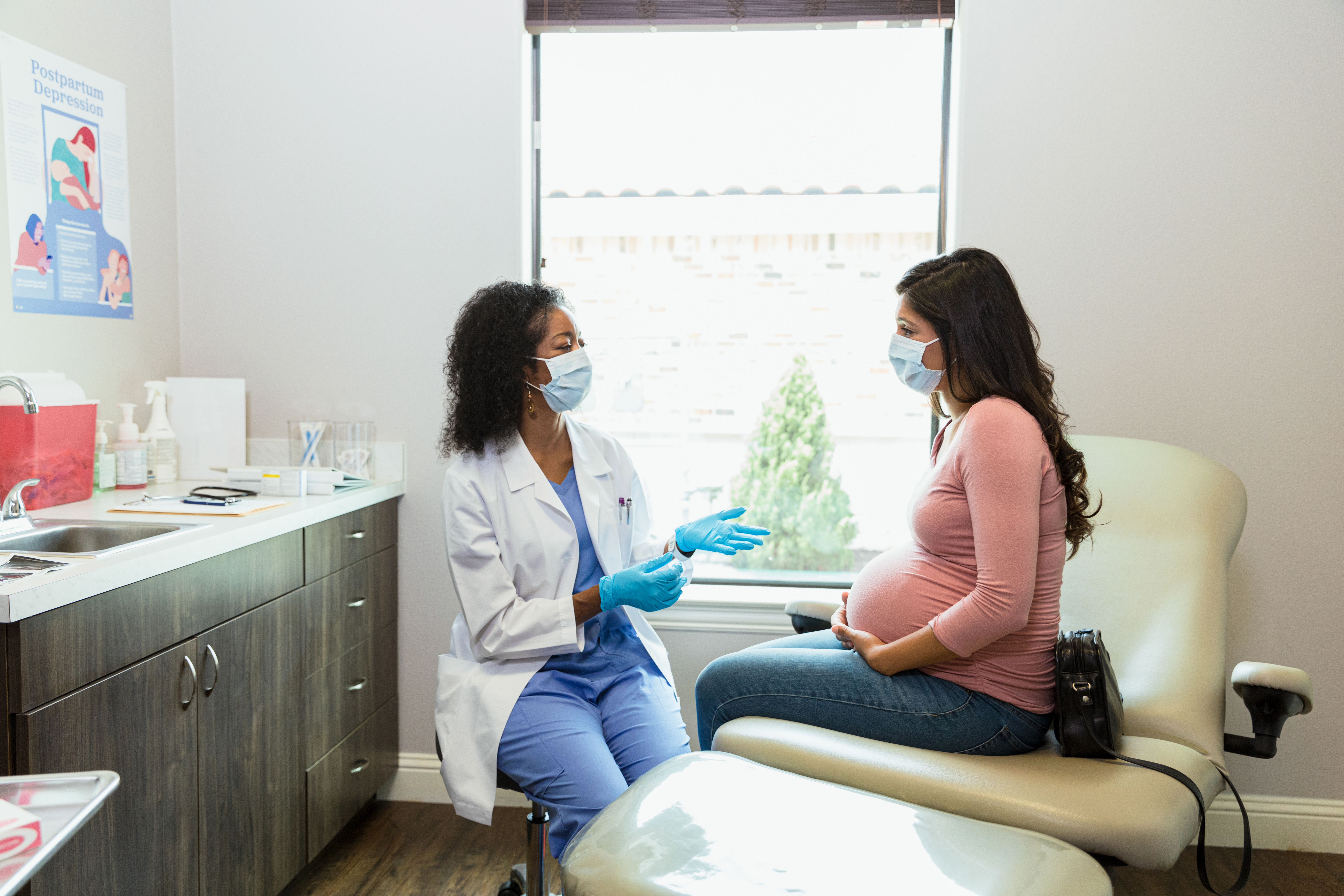Can FNPs Work in the Hospital? Your 2022 Guide
You’ve finally finished getting your nurse practitioner degree. So what do you do next?
After you graduate and get your license, it’s time to decide where you’ll work. And choosing where to work can be tricky, especially for a family nurse practitioner's (FNP) broad scope of practice. Some people think you can only work in primary care as an FNP, but that’s not true.
FNPs work in various settings including private practices, clinics, and even hospitals. Almost half of the NPs certified as of 2021 reported having at least some hospital privileges. And nearly 50,000 NPs work full-time in the hospital, while 12,000 NPs work full-time in the emergency room (ER).
Whether on a medical-surgical floor or in the ER, inpatient practice is a growing and fulfilling specialty that FNPs can work in after graduating. But how? Do FNPs learn enough in school to work in such an acute setting?
Let’s explore these questions and the journey from FNP to working in the hospital!
What does a hospital NP do?
Working in the hospital or the ER is very different from family practice. ER NPs usually work odd hours and have different start times, such as 6 pm until 2 am, not just regular night shift hours as registered nurses do.
How the rest of the workday goes really depends on how busy the ER or hospital unit is. Most hospital providers will round individually on their patients, either admitted or those in triage, doing their assessments and ordering testing. Later in the shift, they will make their rounds with the full team, including the attending physician. When working in the ER, NPs must be prepared to see a wide variety of different complaints and patients of all ages.
NPs often work as part of a team with other providers, nurses, pharmacists, and other healthcare workers like social workers in the hospital setting. This makes it a supportive and multidisciplinary environment that many FNPs describe as a great learning experience. But, how do you make the transition to the hospital or ER as an FNP successfully?
How to transition to the hospital as an FNP
In FNP school, students are given a broad overview of practically everything that can occur in medicine including things like diabetes management, women’s health, pregnancy care, pediatrics, and care for the elderly. They have to be responsible for a lot in primary care, which is still the most common area of employment for FNPs.
Most hospitals and ERs don’t require separate certifications or any other special requirements other than the FNP degree. Many, however, do require an ER certificate or special training. While there are no set requirements for becoming a hospital NP, there are a few steps that can help you get there!
1. Get your Bachelor of Science in Nursing (BSN)
Most NP degree programs will require a BSN as well as an associate’s degree. So starting with a BSN is an important first step!
2. Gain experience in hospital or emergency room nursing
After you get your BSN, it’s a great time to start your hospital career. You can begin on a medical-surgical unit to get your feet wet or go straight to the ER, whichever works best for you. Get a few years of experience in this area to know how the hospital functions and what kind of patients you’ll be seeing in the future.
3. Obtain your FNP degree
This can be a master's degree or a doctoral degree. Try to get some of your clinical hours in with a hospitalist or ER provider during this time. Some continue to work during school while others don’t but try to work somewhere in the hospital or in the ER if you do.
4. Consider a certification
Some ERs and hospitals may require certification, so look into this before applying for jobs. There are multiple different certifications that FNPs and other NPs can get in emergency and acute inpatient care. This can involve a certificate program through a university, like a separate degree or a continuing education program. This will often include a fellowship program with the hospital and the ER to give you something similar to a residency.
Once your certification education is complete, you can apply for the Emergency Nurse Practitioner Exam to officially gain your certification and start applying for jobs.
5. Make connections and apply
If you’ve been working in the hospital or have some clinicals with a hospitalist or ER provider, start connecting with them, letting them know you’re an FNP now and looking for work. See what jobs they have and start applying.
How to find a hospital or ER job as an FNP
Here are a few tips on finding a hospital or emergency room NP job:
- Browse online job boards
- Make connections with hospitalists or ER providers and managers
- Work in the hospital or ER as a registered nurse
- Do some clinical with a hospitalist or in the ER
- Reach out to local organizations of ER providers to network
Outlook for Hospital and ER NPs
So, you’ve decided you want to work as a hospital or ER NP. What’s that going to look like over the next few years?
As of 2021, the median income for a full-time ER NP was $130,000, some as high as $170,000. It’s predicted that the need for hospital providers will only increase over the next few years, and they have been essential during the COVID-19 pandemic. Hospital care is one of the more stable career paths and an excellent option for FNPs!
Finding an FNP job in an acute isn’t easy, but becoming more and more common. So start your hospital or ER career today, even as an FNP!
Alison Shely, DNP, FNP-C is a nurse practitioner, nurse coach, and nurse content writer who specializes in articles, guest blogger, and healthcare worker wellness. She has been in nursing since 2014, working in intensive care, women’s health, and primary care as a registered nurse and family nurse practitioner. Her specialty topics include mental health, health and wellness, yoga philosophy and practice, and community health. She also serves as a health coach and mentor to other nurses and healthcare workers concerning healthy lifestyles and mental health.



